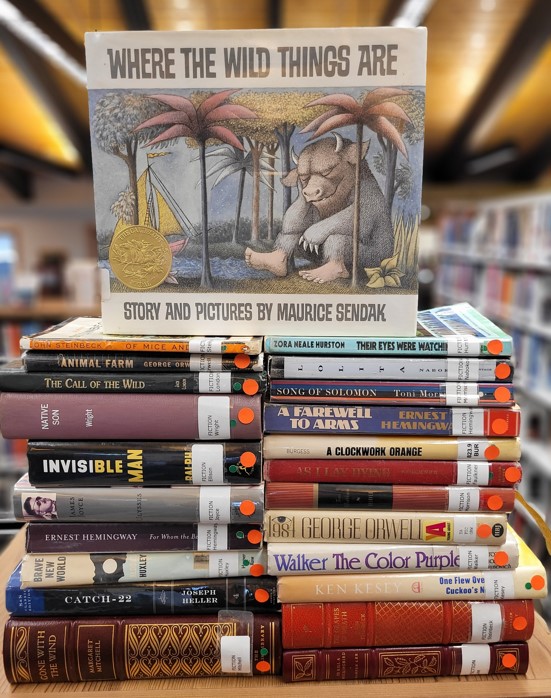by Cathy Butterfield, Collections Manager

The recognition that knowledge is a form of power has shaped libraries around the world and through the ages.
Our earliest forms of written symbol and history are passed down to us through myriad forms of libraries throughout the ages, from the cave art of Lascaux, to Babylonian clay tablets from the 3rd century B.C., to the website “Archive of Our Own.” Without the archival passion to preserve, those records would have returned to river mud, or cemented into the walls of fortresses (many were.)
The emperor Shih Huang-ti of the Ch’in dynasty ordered all historical records other than those of the Ch’in to be destroyed so that history would seem to begin with his rule. Preservation of the earliest records were the province of kings and merchant princes, pharaohs, and conquering generals.
In 48 BC, a good part of the great Library of Alexandria was sacked and burned—one of the chief suspects was Julius Caesar. One of the first known libraries made accessible to the public, rather than the elite, was launched in Rome soon after Caesar’s death. The historian Pliny understood the significance, praising the founder Asinius Pollio: ingenia hominum rem publicam fecit (“He made men’s talents a public possession.”). That may be the most radical aspect of a public library—it shares the power of information with their entire community, rather than just the powerful.
That may be the most radical aspect of a public library—it shares the power of information with their entire community, rather than just the powerful.
The director of the Boundary County Library in Bonner’s Ferry, Kimber Glidden, resigned this last week, citing a “political atmosphere of extremism, militant Christian fundamentalism, intimidation tactics, and threatening behavior currently being employed in the community.” A few short years ago, this same library won the award for Best Small Library in the country. What happened? Boundary County’s own web page has a cogent and concise farewell letter posted on their main page that goes straight to the point.
“This is about control of what information our community is allowed access to,” wrote Glidden. “What is the weapon a small number of people are using to divide this community? Fear, irrational threats, and moral panic.”
Moral panic is a powerful force, shaped by deception, intimidation, and irrational rhetoric. Those generating moral panic about a community having free access to books have a greater agenda—control of the institution as a whole, and by extension, the community it serves. The forces behind bans and challenges want to be kings and merchant princes, and shape history to suit their needs. As Kimberly Giddens says in her farewell:
“Now more than ever it is imperative that we guarantee the freedom to read, the freedom of expression, the freedom of information, and the right to a fair and balanced education.”
~Kimber Gidden, FORMER Boundary Country Library Director
“Now more than ever it is imperative that we guarantee the freedom to read, the freedom of expression, the freedom of information, and the right to a fair and balanced education. The library will stand to protect the rights of all people.
“It is time to take a stand against false narratives. Thank you and spread the word.”
